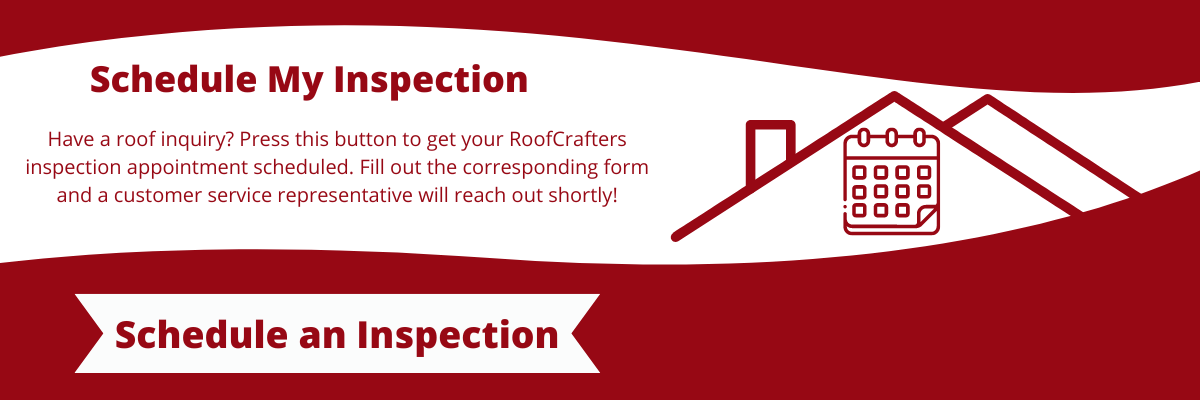Which Type of Roofing Insulation Is Best for My Commercial Property?
June , 2023 | 6 min. read
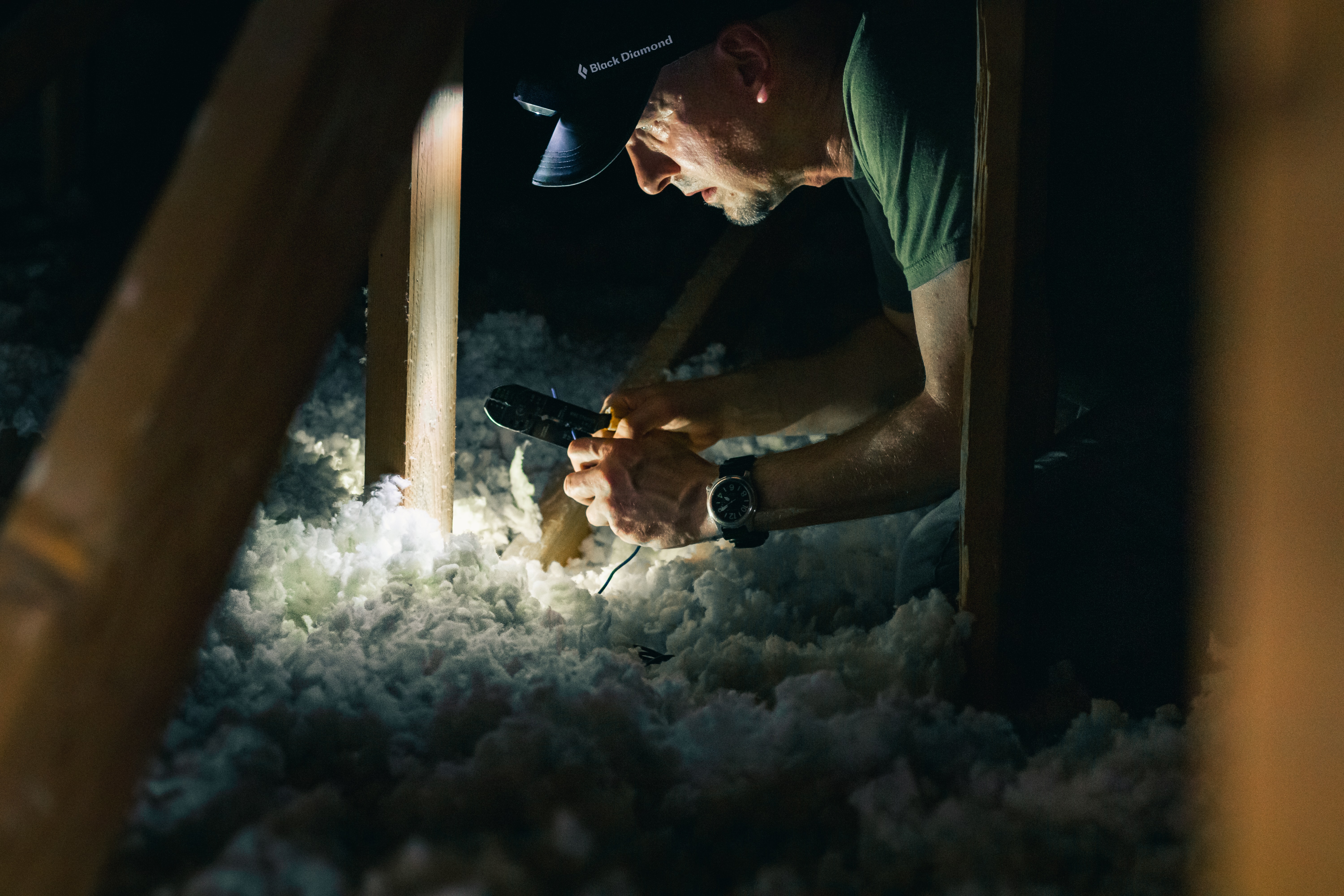
When most people think about the southeast in the summertime, their minds go to palm trees, white sandy beaches, and most importantly, heat. Natives to Florida, Georgia, and South Carolina, like myself, are accustomed to the rising temperatures. However, despite what most out-of-state people think, we still need insulation in our homes and businesses.
Wait, if it’s already hot outside, why do you need insulation? Roofing insulation is mostly known for keeping you Northerners warm on cold winter nights, but we Southerners need it, too! It plays a crucial role in reducing the heating and cooling costs of our businesses and homes and helps to limit the thermal transfer between indoor and outdoor temperatures.
Insulation is so important that it’s against code in most states to not have it. RoofCrafters has been in the game since ‘94, and we’ve seen what can happen when commercial business owners don’t follow best practices when it comes to proper insulation. Trust us, it’s not pretty.
If you’re interested in preventing long-term roof damage that may result in a premature roof replacement on your business, come and stay awhile. That’s right, insulation can prevent roof damage, which is one of the reasons it’s so important to have. All of this being said, in this article, you’ll learn what insulation is, its types, and its importance. So, let’s jump right in!
What is Insulation?
Like Shrek once said, “Ogres are like onions, they have layers”, the roof on your business isn’t much different. From the layer part, I mean. The ogre part, well, you can be the judge of that. There’s the decking, different materials, and you guessed it, insulation. The insulation in your business is going to differ only slightly from the insulation in your home, though. Whichever insulation you choose, it will be installed somewhere underneath the outer roofing membrane.
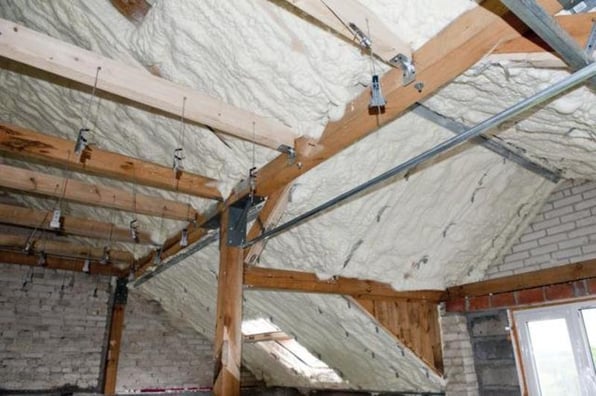
Commercial roofing insulation provides your business with an abundance of structural advantages, such as thermal protection, temperature regulation, weather resistance, and more. What business owner doesn’t want lower utility costs and a longer roof lifespan? If that sounds like something you’re interested in, let’s learn about the different types of insulation available for your business.
Commercial Roof Insulation Types
There’s a wide variety of insulation types that you can choose from for your business, all ranging in material type, method of installation, and R-value. During your initial inspection, your contractor will be able to recommend the insulation type that they think is best for your project. In the meantime, here are a few of the most common types of commercial roof insulation:
- Spray foam
- Fiberglass
- Polyisocyanurate
- Extruded polystyrene
- Expanded polystyrene
Remember, it's always best practice to consult with your roofing contractor about the type of roofing system you have, and which insulation would operate the best for your building.
Spray Foam Insulation
Spray foam insulation is by far the most popular type of commercial roofing insulation. It has high thermal resistance, soundproofing abilities, and incredible durability, making this a great choice for all business owners alike.
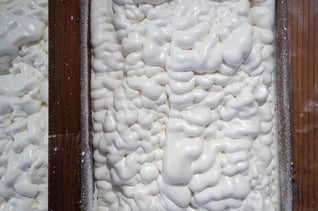
Choosing to insulate your building with spray foam also helps you reduce your carbon footprint, so you can help the environment and your workplace prosper. Not to mention, you’ll be saving a lot of money down the road on reduced energy bills. It’s a win-win!
Mineral Wool Insulation
Mineral wool, sometimes called stone wool is a type of insulation that has the ability to withstand high temperatures. It’s made by heating rock or glass until tiny molten fibers are spun and bound together to form a rigid board, which makes this ideal for bitumen application and heat welders. Mineral wool is commonly used as a cover board for asphalt roofing systems because of its stability and fire-resistant abilities. Its water-repellent properties make it a great choice for business owners in storm-heavy climates.
Polyisocyanurate Insulation
I’m still speaking English, I promise. Polyisocyanurate, or its less mouthy nickname, ISO, is foam insulation that is provided in the form of a panel. ISO has many benefits, and like spray foam, it is one of the most popular insulations. It’s an above-deck type of insulation, and it has an outer foil-facing layer which saves you the trouble of installing a vapor barrier on your roof.
Extruded Polystyrene Insulation
Extruded polystyrene insulation, known as XPS or Styrofoam is also a foam-based solution. It’s available to business owners on a board or panel and is an incredibly effective insulation for commercial buildings.
It’s made from a thermoplastic material that’s manufactured from polystyrene. Polystyrene, still speaking English, is a synthetic hydrocarbon polymer. You’ll be provided with great thermal conductivity performance when you choose XPS insulation.
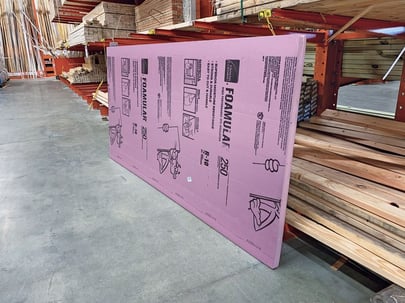
Photo Credit: Craig Bettenhausen/C&EN
Expanded Polystyrene Insulation
Last but certainly not least is XPS brother, expanded polystyrene insulation, or EPS. It’s available in a foam board and is known to be a cheaper version of XPS, although it provides about the same level of insulation performance. EPS is smaller in size than XPS, which means you’ll be receiving lesser thermal properties.
Which Type of Roofing Insulation is Best for My Commercial Property
When it comes down to choosing the best type of insulation for your commercial business, there are a few different factors at play. The right type of insulation for your commercial building will range from the age and type of building you have, the type of business you run, and of course, your budget. Remember to pay attention to local ordinances and building codes in your area as well.
All of the insulation types mentioned in this article are great options for any business owner, and with the help of a trusted contractor, you can narrow down your choices to find the best fit for you. Although your roofer won’t be installing your insulation for you, they can recommend a great insulation contractor who will complete the job.
RoofCrafters installs spray foam for our commercial business families, but we've also kept tabs on some of the best insulation installers in the game for the past 28 years, so if it’s a reference you need, drop us a line on our contact page.
In the meantime, if you’re eager to learn more about the roofing services available to you, feel free to check out the extensive resources available to you in our learning center. I recommend reading “What You Need To Know About Roofing Ventilation Systems” which goes hand and hand with proper insulation. The more you know!
My name is Cassie, and I’m the Content Manager here at RoofCrafters. I was born and raised in Chicago, Illinois, and made my way out to Florida post-college graduation. I’m incredibly passionate about writing and creating valuable content that helps others with the collaboration of my marketing team. When I’m not working, I enjoy shopping (a little too much), spending time at the beach, and reading!



